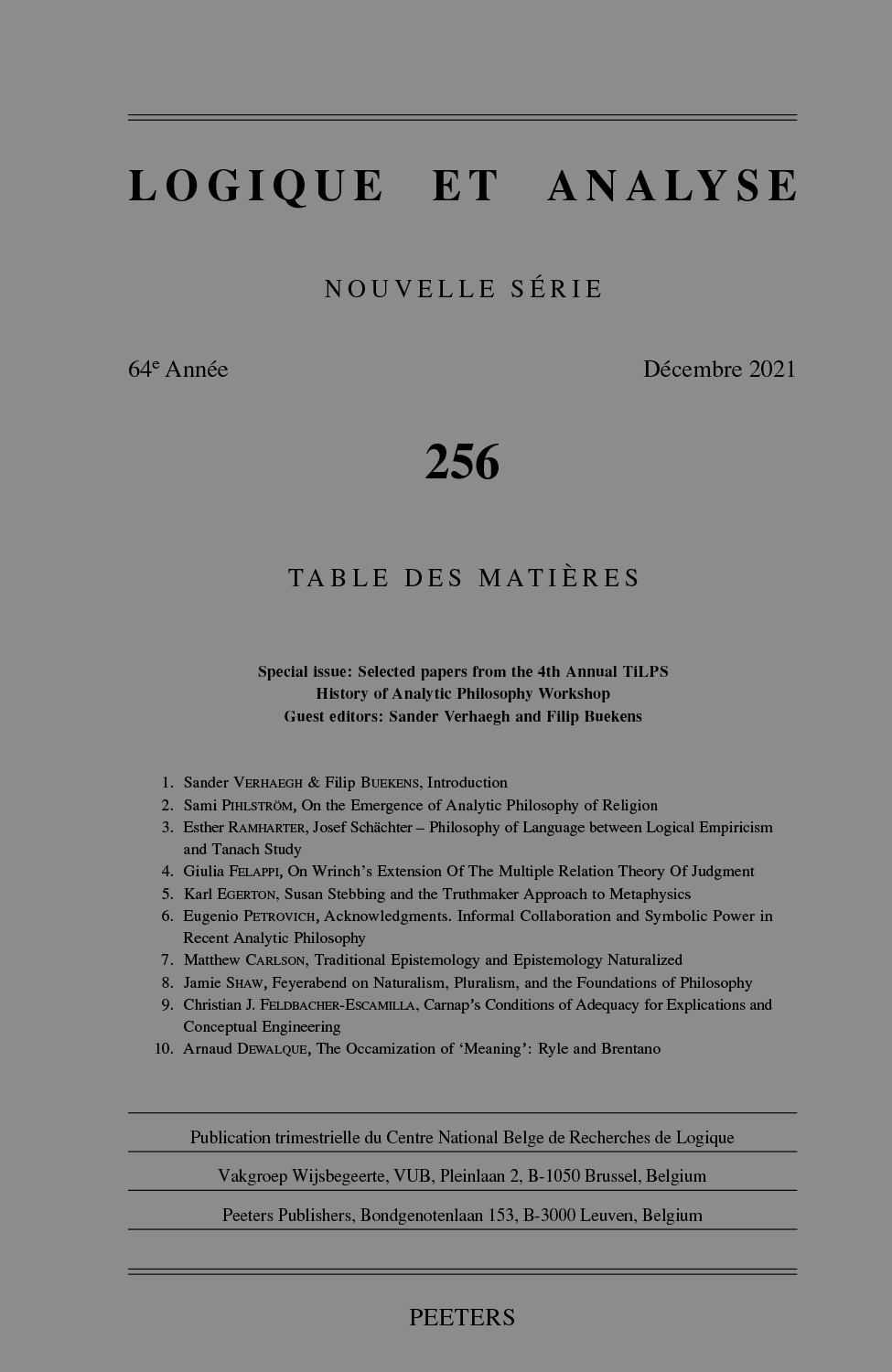next article in this issue  |

Preview first page |
Document Details : Title: Predication and Computable Concepts Author(s): FREUND, Max A. Journal: Logique et Analyse Volume: 234 Date: 2016 Pages: 133-155 DOI: 10.2143/LEA.234.0.3159738 Abstract : Our interest in this paper is in the concept of predication itself and the extent to which such a concept can consistently be assumed to be fully or semi-computable. We address this problem relative to the logical context provided by a certain formal system that we label LC and several well founded results from standard computability theory. System LC is a conceptualist second order logical formal system for reasoning with computable concepts. The system also contains an axiom assigning correlates to semi-computable concepts. Concept-correlates are entities whose content include a general specification of the conditions under which the correlated concepts can be truly predicated or cannot be truly predicated of objects or an encoding of such a specification. The axiom in question is justified on the basis of Church’s thesis and a discussion concerning the relationship between computable concepts and Turing machines. We show, by means of a semantic model, that predication can be consistently assumed to be semi-computable, when restricted in its application to fully computable or semi-computable concepts. Within the context of LC, we also prove that a contradiction ensues if the concept of predication is held to be fully computable. If the concept of predication is assumed to be a semicomputable concept applicable to any concept (computable or otherwise), we show that a consequence follows within LC that would contradict a well-established result from computability theory. |
 |


